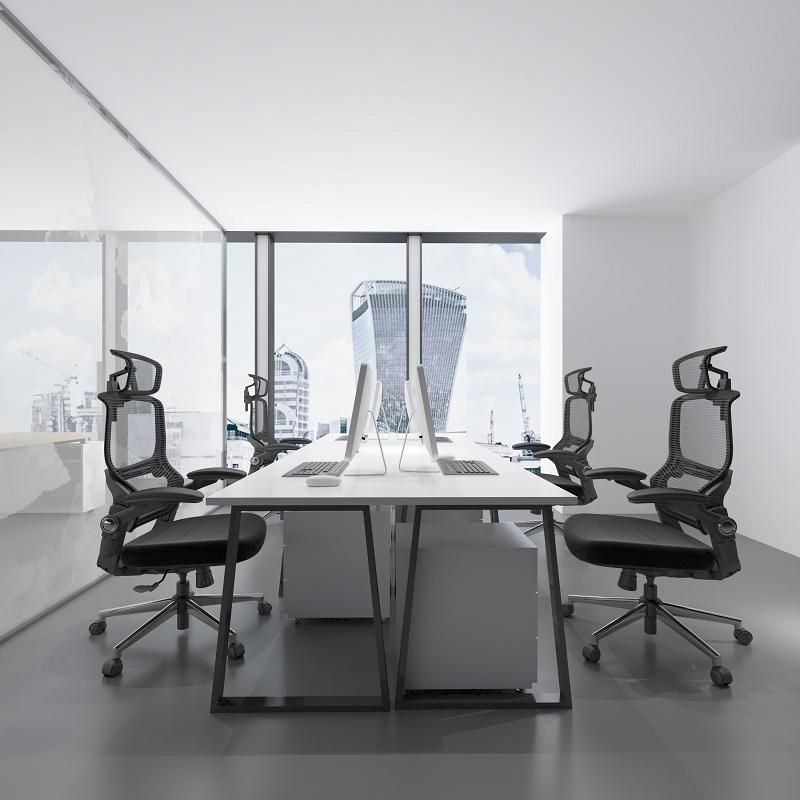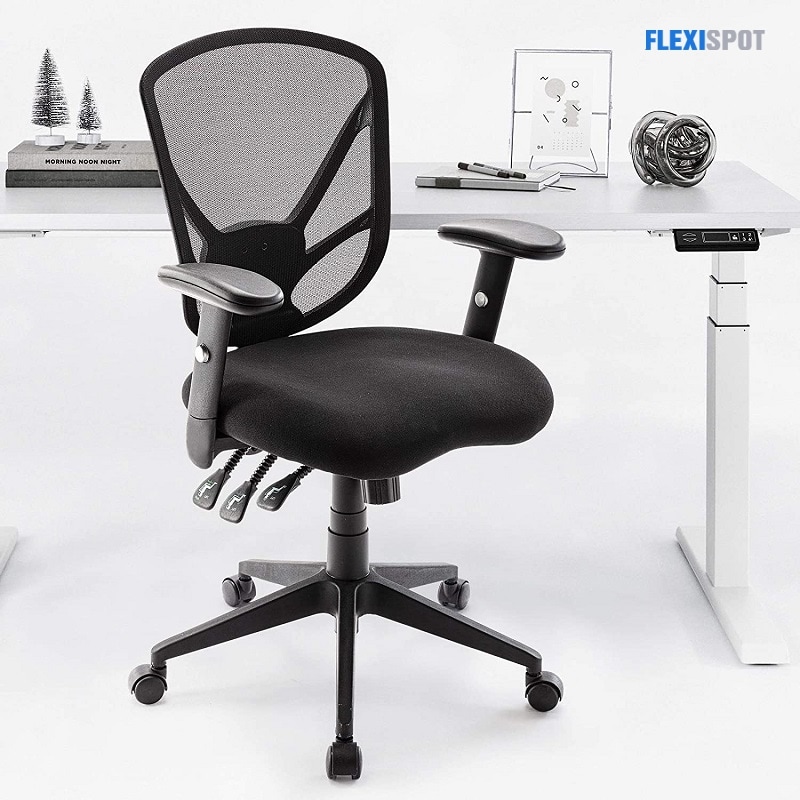It’s a common topic of discussion across the nation, with employees debating about the use of armrests. Some individuals swear by them, while others find that using their ergonomic office chair without them is comfier. Sitting correctly appears to be a simple task. Still, if we pay attention to how we sit throughout the day, we’ll discover that we end up leaning back or transitioning into a position that ‘feels’ more relaxed but is doing more harm in the long run. In the end, the choice is entirely personal.
Armrests are only helpful for ergonomics if they encourage the user to sit in a neutral position. This is determined by various factors, such as the user’s bone structure and the size of the desk. It is not suitable for ergonomics if the armrests make it challenging to access the desk. That being said, all of the debates about armrests can be resolved simply by selecting the best desk chair for workspace and body type.
Types of Office Chair Armrests
The armrests of an office chair are on the side of the chair and are cushioned or upholstered and give a place for your forearms to rest. Armrests are intended to ease pressure on your shoulders and wrists, which is especially important when working at a computer. The three most typical types of armrests are as follows:
Fixed Armrests - This sort of armrest does not allow for any adjustments. These can be seen on both budget and executive office chairs.
T-shaped Armrests - As the name implies, this sort of armrest is formed like the letter T. Most T-shaped armrests can be adjusted in height.
Looped Armrests - This sort of armrest, which can be fixed or adjustable, forms a complete circle. Looped armrests are available on some choices with reclining capabilities.
Folding Armrests - Folding armrests come in handy when you need to instantly switch between using and not using armrests, which usually corresponds to the sort of work you’re doing. Folding armrests typically have only two positions. ‘Up’ means the armrest is tucked up vertically and out of the way; ‘down’ means the armrest is folded to a horizontal position. Because the width and height of these armrests cannot be modified, you will be stuck with the armrest’s default horizontal position if you use it.
Adjustable Armrests - The best armrests are those that can be adjusted. The cream of the crop. These are found on more expensive office chair models. While not all have the same functionalities, they all have a good mix of width, height, and pivot modifications to make it easy to find the best position for you and your desk.
The armrests should be situated so that the user’s elbows are in their relaxed state. The armrests should assist in achieving the ideal 90-degree elbow angle if the user is working in front of a computer. This prevents the user from overexerting the wrists, which is particularly necessary when typing. When you consider that the hands and arms account for about 12% of total body mass, it’s easy to see why armrests can help alleviate the pressure on the shoulders and neck. Studies have shown that armrests lessen about 10% of the load on the spine and 50% of the force to the hips when sitting.
Armrest Considerations
Forearm support, which is frequently offered by properly configured armrests from leading manufacturers, may alleviate pain and discomfort in your shoulders or neck. When selecting armrests for an office chair, keep the following factors in mind:
Height Adjustability
The majority of armrests are at least height-adjustable, but the narrative doesn’t end there. One of the core criticisms against armrests is that they might prevent users from getting close to the workstation, causing back and neck pain. Armrests should have a height range that is high enough to be level with your workstation and low enough to fit under the workstation when necessary. To determine the proper measures, measure the amount of buffer space you have under your desk.
Armrest Width
We come in a range of shapes and sizes. Unless an armrest is adjustable, it will not be entirely helpful to use. Armrest widths can help ease the muscles in your shoulders, neck, arms, and hands and promote optimal body alignment. Make sure your armrests are wide enough for your arms and shoulders to sit comfortably at your side. If your armrests are excessively broad, you’ll have to stretch to fit your forearms on them, which might be uncomfortable.
Adjustable Length
The armrests on some ergonomic office chairs can be adjusted in length. They may move backward and forward to help you get the best forearm position. To avoid sitting too close to your workstation, the chair’s length should be neither too short nor too long. It can be a game-changer to have the freedom to shake things up.
Pivoting Armrests
To produce a “v” shape, pivoting armrests can be tilted inwards or outwards. Suppose you regularly adopt arm positions wherein your wrists are close to each other without the help of the desk. In that case, rotating armrests can be extremely useful in ensuring that your forearms are fully covered in those configurations. Texting on your phone is a prime example. Your wrists are close together, your forearms forming a tight “v” shape, and your forearms are supporting the phone weight on their own. When this happens, pivoting armrests are a blessing.
Flip-up Armrests
Some individuals may want to have armrests, while others may not. This sort of chair is most commonly found in shared working environments. It may also be appropriate for small work areas or desks with limited under-desk space. Only a few chairs with flip-up armrests offer any other adjustment besides flipping upwards. From an ergonomic sense, this could be a disadvantage. Think about this decision carefully. Make sure the armrests are the right height and width for your body and workstation.
While armrests are only one component of ergonomic office chairs that helps to reduce dangers, they are vital. A brief moment of comfort against a lifetime of pain due to injury is not worth it. While sitting properly may feel odd at first, you’ll feel considerably better as your body adjusts to the position.
Armrests are an excellent technique to relieve pain and discomfort, especially in the neck, arms, and shoulders. You can avoid injuries by relaxing your entire upper body, particularly when sitting for lengthy periods. This will ensure that every day at work is a pleasant experience for you.
For the best ergonomic office chairs, you may visit FlexiSpot click here!



